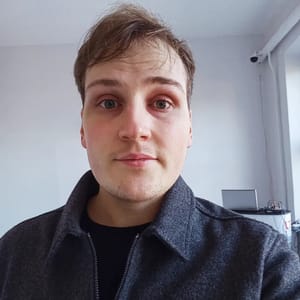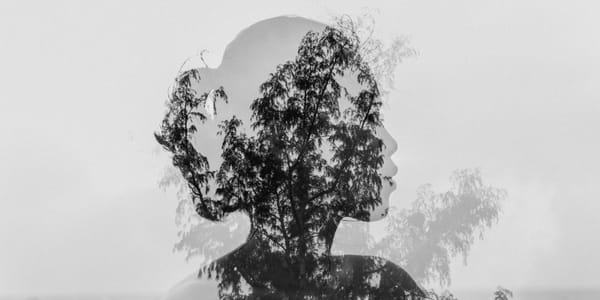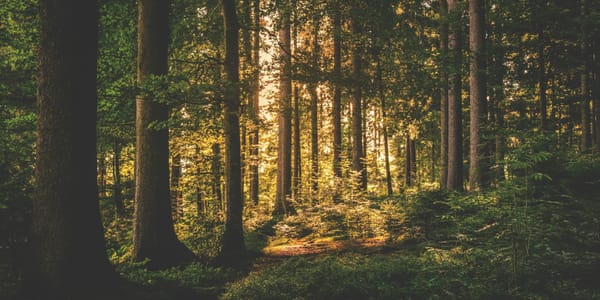Today is a day just like any other — millions of people woke up, stayed in bed for a while, stared at the ceiling, and wondered: “What is the point of all this?” But alarm after alarm reminded them of their upcoming responsibilities, and they finally got up to live another day, trying to find meaning in their daily activities.
The main reason so many of us are like this is the cultural key we follow — willingly or not. We are born as innocent babies who just play and observe this world. But at some point, we are forced to join society and its systems, which try to draw us into a systemic way of life. And this is where the whole dilemma of searching for meaning begins. We can’t just be alive anymore, but we must find who we want to be when we grow up, our social role, and work for it — sit and listen carefully. Otherwise, as society presents to us, our life will be a disaster. This is how we get successfully fooled and how the race for a better future — the rat race, begins.
And don’t get me wrong — society and its systems, with the education system on top, are necessary to prevent anarchy and allow us to develop the comfortable life we know today. But this comes at the price of tremendous pressure and anxiety that has nothing to do with the natural process of life — no other creature has such problems.
Many people understood that during the 2020 pandemic, when the whole world, and thus the rat race, stopped for the first time in their lives, they could finally reflect on their journey. And despite the dramatic effects of the pandemic — many deaths and great harm to the economy, it was also a transformative experience for many people who finally had time and opportunity to rethink their approach to life and escape their cultural key.
Because it’s not like people are stupid and don’t know what they want to do in life or what’s good for them. But social pressure is so high today that most people bend under it and follow the key mostly in search of belonging and understanding. In my culture — in Poland, in Central Europe, it’s still like this: get into college, have some fun, graduate, mature, find a job, find a life partner, get engaged, get married, have children, buy a house and then live a good family life. It’s great for society because as you do it, you’re trapped with a mortgage or children's responsibilities, and you just can’t escape society’s life anymore — you become a perfectly normal citizen.
The problem is that the cultural key puts all our attention outside and never inside. And after 20, 30, 40, or so years of putting attention outside, we suddenly wonder what our life's meaning is. Jim Rohn once brilliantly said: “If you don’t design your own life plan, chances are you’ll fall into someone else’s plan. And guess what they have planned for you? Not much.” Because that’s what happens if you follow the cultural key, so if you don’t quit the rat race — you fall into society's plan and become a normal citizen. Again, this is good for the community because it prevents anarchy by at least offering some kind of plan, some meaning — something worth striving for.
There is also a chance that we will somehow discover our purpose by following the cultural key, but if this does not happen and we feel empty, we must turn our attention inward and remove all social conditioning. The latter is crucial as we were taught that whatever we do in life needs to be useful, and we need to be practical, while our purpose is often hidden in our gifts that are often completely useless at first glance. Therefore we need to change the equation from “What’s useful and what I can get from it” to “What is my gift, and how can I use the gift to get something from it?”
The part “What is my gift” is pretty simple, although it might take some time to discover. But the hint is that your gift lies in something you do with absolute ease without any preparation or related social gains.
For example, I have never liked writing in school and didn’t finish any college or even courses about writing. But one day, I accidentally discovered this platform when collecting valuable Web 2.0 websites as an SEO specialist, and I weirdly felt driven to express some ideas. Moreover, I somehow knew how to do it — how to structure, organize and put my thoughts from the beginning to the end. Then I suddenly realized I had been writing to myself my whole life in numerous journals, notes, or documents, and it’s just a natural form of expression and organizing thoughts for me. And I need it no matter if it’s my job or not.
The part “How can I use the gift to get something from it” is a little harder. But it’s helpful when we shift our attention to: “How can I use the gift to help people” as then we surely “Get something from it” — “at least” a good deed.
Nevertheless, once we discover our gift, the best we can do is practice it, not thinking about the purpose. If it’s writing, just start writing on some platform or even drafting a book. If it’s capturing moments in photos or video, just start doing it and share it somewhere. If it’s great visual creativity, just start playing with graphics programs and create something cool. No matter what it is, just practice and have fun.
The thing is, as we discover and practice our gift, one day, our purpose will emerge spontaneously. And while it’s not sound tempting, it’s actually the best way to discover our purpose. Because otherwise, without practicing our gift or gifts, we remain in dreamland and simply won’t be ready when some occasion appears. But when we find our gift, practice it, and share it somewhere, no matter what it is — ball juggling, processing information, great memory, singing, or painting, someone might recognize us one day and interact or even offer us something. This recognition will take us further, and the world will slowly tell us what it needs, and the need that our gift can fulfill will become our purpose.
Therefore we shouldn’t focus on our purpose but find our gift, practice it — even a little as a hobby, and then let things unfold naturally. Also, the purpose doesn’t need to be spectacular initially but can evolve from a little helping hand in a local community to something bigger if necessary.







